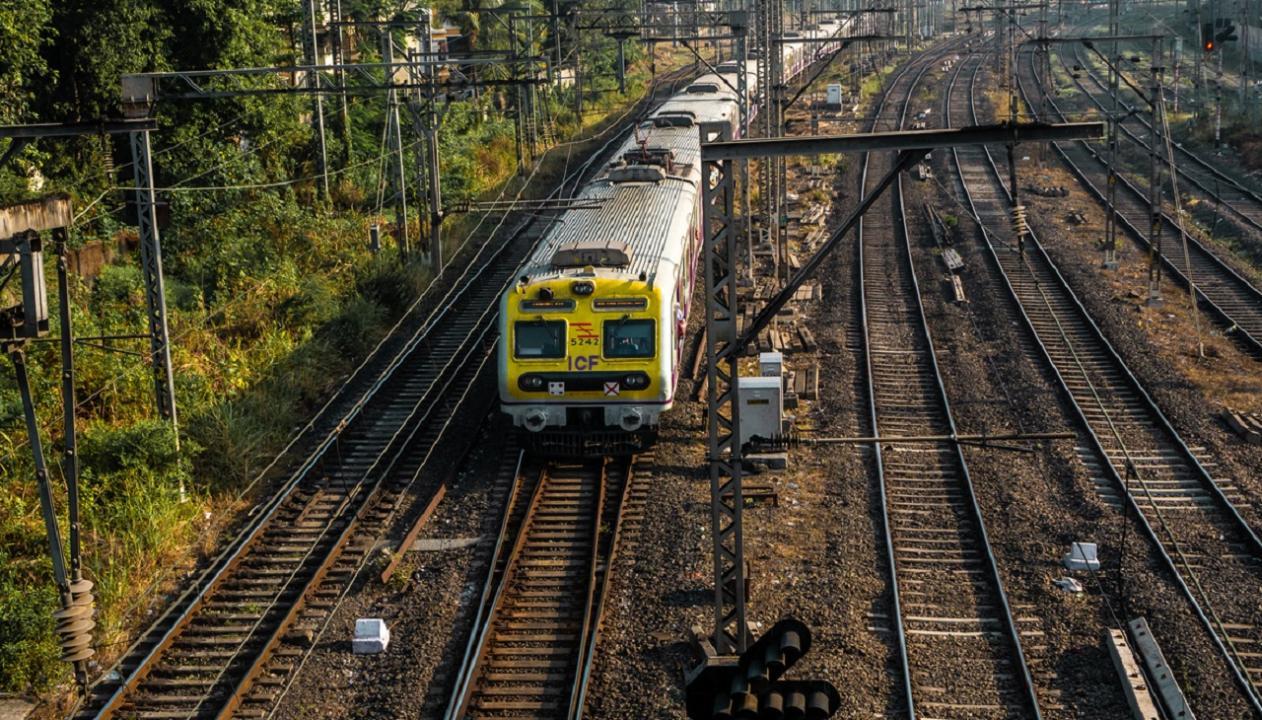Yadav said he had ordered a study of the station yard to find a long term solution to the problem, including shifting a crossover point, to reduce a sharp curve of 7.5 degrees, since this causes the tongue rail to be replaced every month

Representational Image
The train derailment outside Mumbai's sprawling Chhatrapati Shivaji Maharaj Terminus (CSMT) on May 1 was due a "defective tongue rail", Central Railway general manager Ram Karan Yadav said on Thursday, reported news agency PTI.
ADVERTISEMENT
Yadav said he had ordered a study of the station yard to find a long term solution to the problem, including shifting a crossover point, to reduce a sharp curve of 7.5 degrees, since this causes the tongue rail to be replaced every month.
Mumbai local trains: 'The tongue rail was found to be defective'
A tongue rail, also called a switch rail, is attached to a running rail and is part of the mechanism that allows a train to cross over from one track to another.
"We have been replacing tongue rails every month on this crossover since it is heavily used. At other locations such tongue rails are replaced every one-and-half years. This tongue rail was found to be defective," Yadav told PTI.
Yadav, who visited the derailment spot outside the CSMT station this morning after two back to back derailments earlier this week, assured suburban services on Harbour line will normalise on Friday as all issues at the spot have been addressed, reported PTI.
"Work will be done tonight and it (services) will normalise from morning. The crossover point located just outside CSMT on which two derailments took place (including April 29) was replaced on April 30," Yadav told PTI.
"I have asked for a study to see how it (curvature) can be eased," the CR GM added.
Mumbai local trains: Trains normally manoeuvre the crossover point at a speed of 30 kilometres per hour
Railway officials said trains normally manoeuvre the crossover point at a speed of 30 kilometres per hour, but a new limit of 10 kmph had been enforced as a precautionary measure.
This led to disruption of suburban services on Habour line as it significantly slowed down the Up (towards CSMT) and Down (away from CSMT) trains there, these officials added, reported PTI.
On Thursday, services on the Harbour line were badly affected during the morning peak hours due to bunching of trains.
"A speed restriction of 10 kmph was imposed at the crossover point where the derailment occurred just outside the CSMT. The delay of suburban services on Harbour line is as a result of it," CR's chief public relations officer Swapnil Nila told PTI.
Mumbai local trains: A delay of at least 45 to 50 minutes
According to the CR official, the local trains on the route were running 25 to 30 minutes behind their usual schedule due to bunching of trains. The commuters, however, said that there was a delay of at least 45 to 50 minutes, reported PTI.
A commuter from Navi Mumbai told PTI, "The train took several long halts at the stations as well as their outer sections. The situation worsened from Wadala Road station. It took around an hour's time for the train to reach the Masjid station from there even as there are just four stations in between."
"Although generally I get down at CSMT, today I left the train at Masjid station and hired a cab to reach my office. But by the time I arrived at the office, I was already late by an hour," he added.
Another commuter Ramesh A told PTI he boarded the train from Vashi station and it took more than an hour to reach Cotton Green, while there were no announcements on why this was so.
A railway official said CR has replaced the crossover point after the derailment on Monday but an empty suburban local derailed at the same spot on Wednesday afternoon while negotiating the point at 15 kmph during a trial, reported PTI.
Hence, speed restriction of 10 kmph has been imposed at the crossover point, he said.
The railway authorities conducted a five-hour block on Wednesday night to address the problem, but the zonal railway has imposed the speed restriction as a precautionary measure.
Harbour line provides suburban local connectivity to Navi Mumbai and western parts of Mumbai from South Mumbai. Daily about 10 lakh commuters travel on the corridor.
(With inputs from PTI)
 Subscribe today by clicking the link and stay updated with the latest news!" Click here!
Subscribe today by clicking the link and stay updated with the latest news!" Click here!







